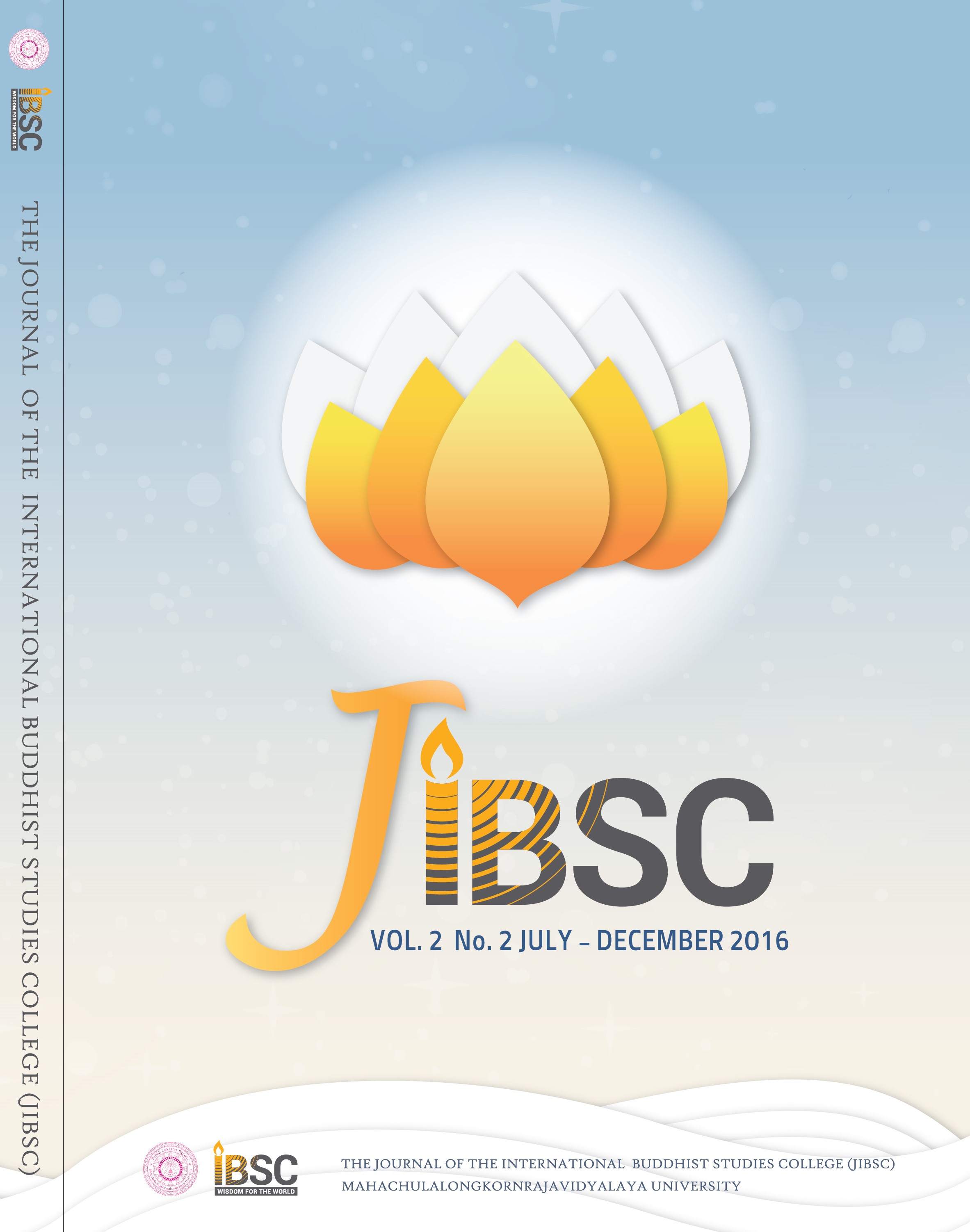A MODEL OF CONFLICT MANAGEMENT BY BUDDHIST PEACEFUL MEANS: LOVING-KINDNESS (METTĀ)
Main Article Content
Abstract
This paper aims to present the model of confl ict management by Buddhist peaceful means using loving-kindness as a medicine for everyone. The study supplies Buddhist perspectives on the causes of confl ict and ways to manage confl ict and realize peace and to explore the potentials of Buddhist contributions to the peacemaking efforts and the promotion of a culture of peace in the world today. The root of violence is located within the mind, for this reason Buddhism has placed a greater importance upon inner refl ection. With the awakening to the interdependent reality, selfi sh compulsive responses will be replaced by the four sublime states; loving-kindness, compassion, sympathetic joy and equanimity. To prevent disputes, as for inter-group or international affairs, Buddhist scriptures are rife with applicable stories that teach non-violent intervention. The Buddhist perspective is one of the building blocks for the modern view of peace studies in its process of peace, its insistence on peace by loving-kindness, and its holistic framework of peace, which would play a vital role in the efforts of bringing the culture of peace into existence to the world. It can be concluded that a model existed of confl ict management within the Buddha’s doctrine of loving-kindness.
Article Details
The Journal of TCI is licensed under a Creative Commons Attribution-NonCommercial-NoDerivatives 4.0 International (CC BY-NC-ND 4.0) licence unless otherwise stated. Please read our Policies page for more information on Open Access, copyright and permissions.


